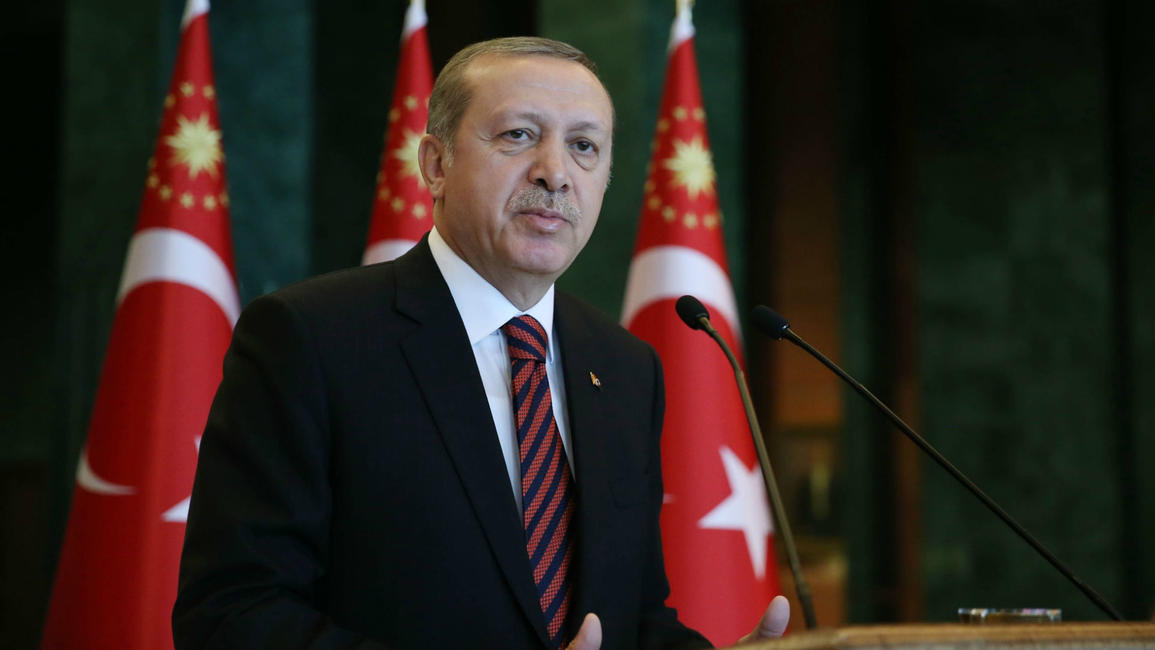Erdogan's constitutional storm steers Turkey towards rocky waters
Turkey's President Recept Tayyip Erdogan looks set to pursue his ambitions of greater powers through a new constitution.
Erdogan put the issue at the centre of his latest election campaign in November and wants to turn the position of president from a ceremonial post into the country's central position of power.
On Wednesday, Reuters reported that the president's Justice and Development Party (AKP) managed to strike a deal with the second largest group in parliament, the Republican People's Party.
The AKP has said that the new consitution will strengthen multi-party democracy in Turkey, where military coups have been frequent, although critics fear it would further entrench Erdogan's authoritarianist mindset.
 |
We request that the Turkish government announce immediately that it will withdraw from Iraqi territory - Haidar al-Abadi, Iraqi PM |
 |
Turkey's constitution is seen by Erdogan's critics in the Kurdish-dominated People's Democratic Party as discriminatary and outdated.
However, the president seems unlikely to win support from the left-wing party to get a new constitution pushed through parliament given Erdogan's reported opposition to any devolution of government power - a key demand of the People's Democratic Party.
Turkish forces are also embarking on a brutal and bloody war against Kurdish separatists in the south-east of the country, while the threat of Islamic State group violence looms over the south.
Islamic State group threat
Ankara is officially at war with the group, and has seen bombings and a spate of assassinations of Syrian activists by IS militants in Turkey.
IS' blatant infringement of Turkish territory and accusations from recent nemesis Russia that Turkey is in collusion with group may make a tough stance against IS more pressing than the question of the constitutional upgrading of presidential powers.
Turkey's military base in northern Iraq, where Turkish soldiers are training Kurdish militants, has been under attack by IS.
It is in a key strategic location and could be where Ankara might launch an effective campaign against IS in its heartlands if it so wished.
But its presence has also put it on a collision course with Baghdad, which is sensitive about its territory being infringed by a neighbouring power, particularly one as powerful as Turkey.
 |
If we are forced to fight... we will be forced to fight - Ibrahim al-Jaafari, Iraq foreign minister |
 |
Large protests have took place in the capital against "Turkish intervention", which many analysts believe is a way of challenging Prime Minister Haider al-Abadi's power.
But after Monday's capture of Ramadi the prime minister is likely feeling renewed confidence in his abilities to take on Turkey.
He said that a Turkish delegation had agreed to withdraw its forces from Iraq. But this is something that Erdogan has made plain he will not do
"The Turkish government has not respected the agreement and we request that the Turkish government announce immediately that it will withdraw from Iraqi territory", said Abadi.
Iraq's Foreign Minister Ibrahim al-Jaafari used even more confrontational language.
"If we are forced to fight and defend our sovereignty and riches, we will be forced to fight," Reuters reported him saying.
It has left Erdogan in an increasingly isolated position both at home and abroad, and probably in need of a significantly greater parliamentary mandate to ensure any chance of grabbing new powers.



